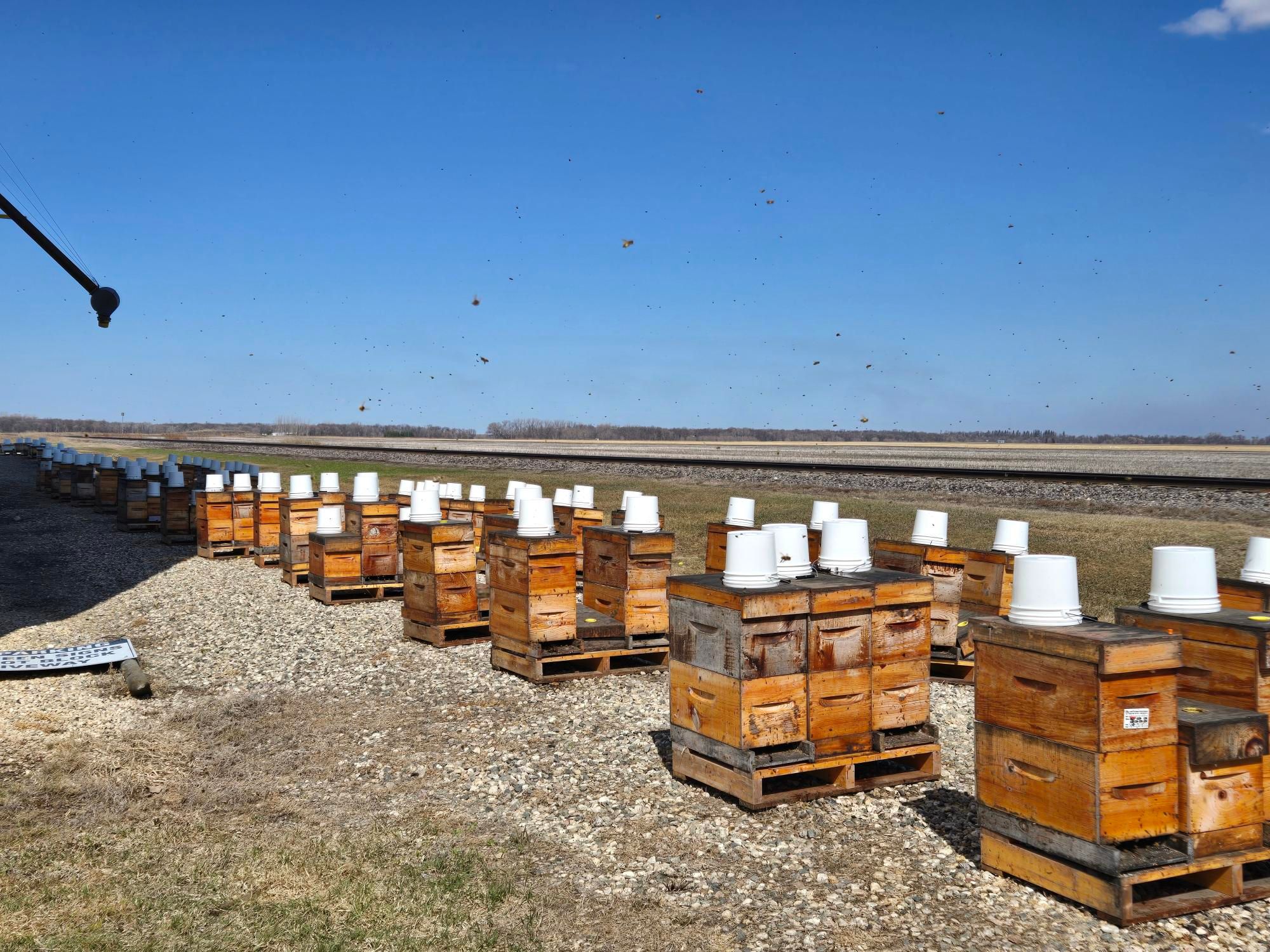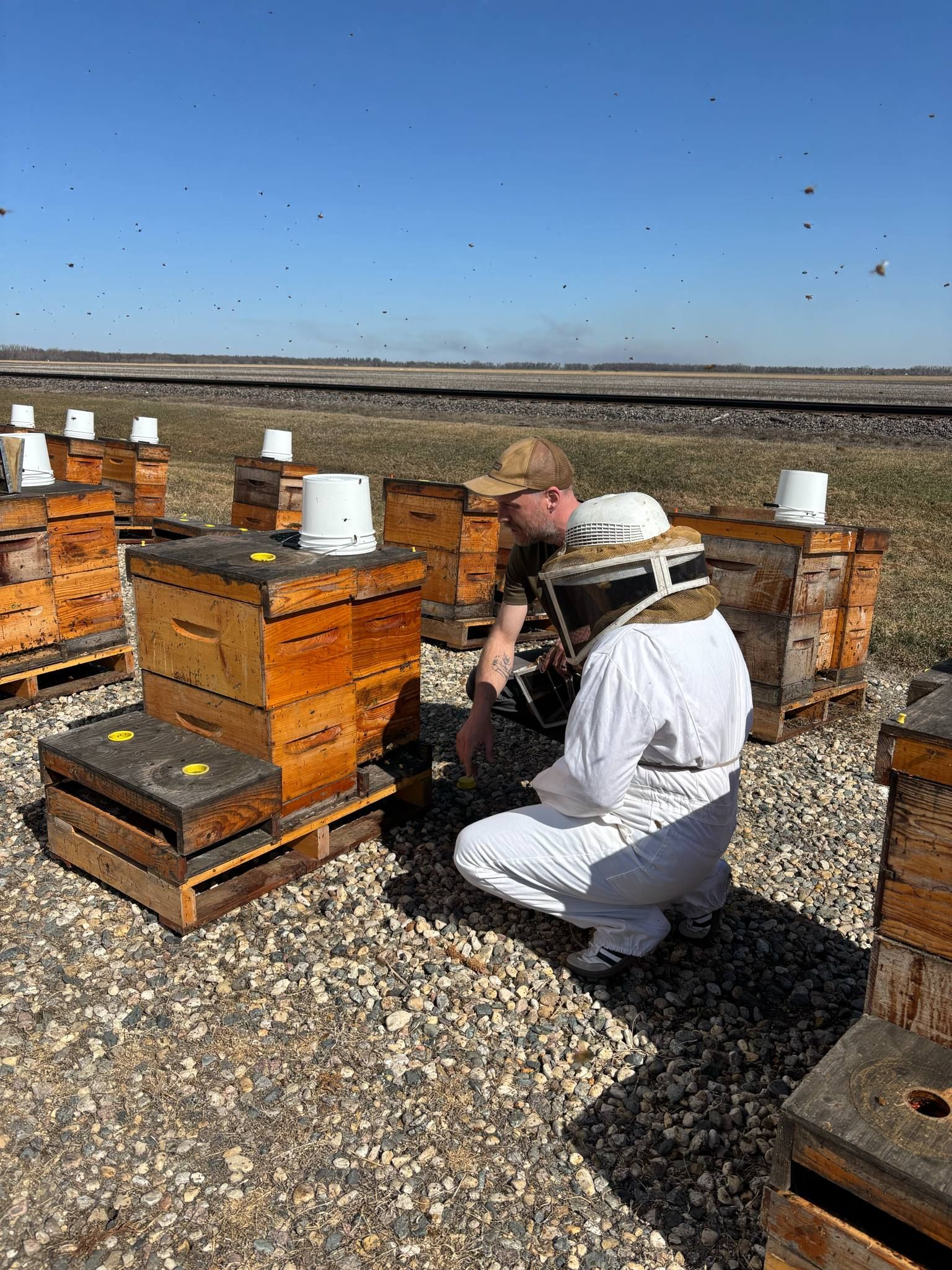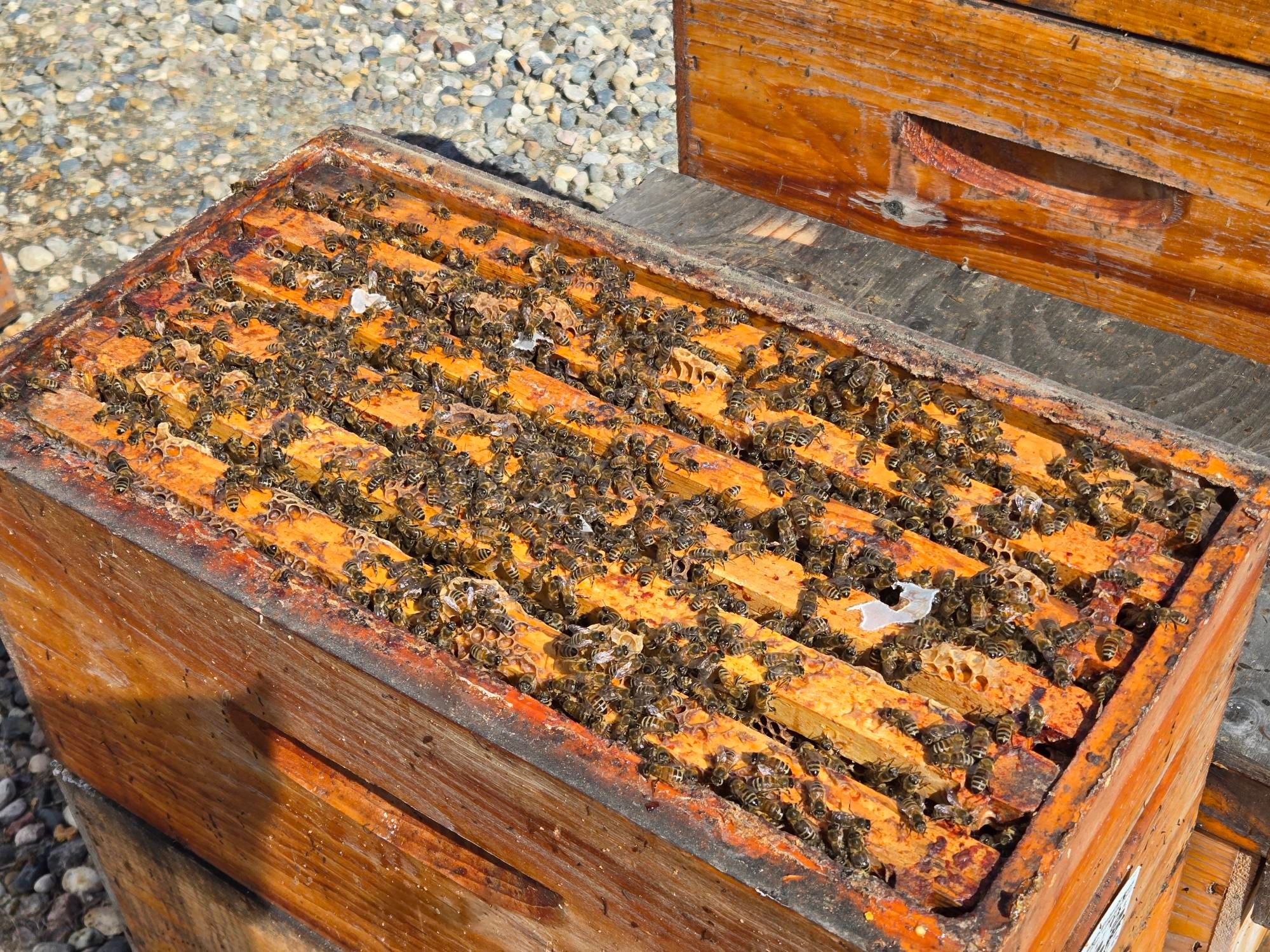Local Beekeeper expresses importance of Honeybees and Native Pollinators
With honeybees playing a critical role in agriculture and food production, one local beekeeper is calling attention to their importance—and the growing need to protect both domesticated bees and native pollinators.
Dale Lewis, owner of Youngest Son Beekeeping near MacGregor, Manitoba, has been raising bees since he was 14 years old. Now managing around 250 hives, Lewis says honeybees are vital not only for honey production but also for pollinating crops that feed communities.
"The bulk of the pollination around here is done by bees," explains Lewis "Beekeepers bring their hives to crops to ensure good pollination, which boosts yields and leads to more food per acre."
However, bee populations are increasingly at risk. Lewis said that while his farm once lost fewer than 5% of its hives over winter, this year saw a 20% loss—better than Manitoba's average loss of 40 to 60%. To mitigate winter mortality, Lewis winters his bees indoors in a specially built, climate-controlled facility.
 Lewis's hives, he has over 250 of them. With over 7000 bees living throughout them
Lewis's hives, he has over 250 of them. With over 7000 bees living throughout themBeyond his honeybee operation, Lewis is also passionate about native pollinators—wild bee species that often go unnoticed but are equally crucial to biodiversity and food production.
"Native pollinators like bumblebees, mason bees, and leafcutter bees are just as important. They don't produce honey or live in big colonies, but they do a lot of the heavy lifting when it comes to pollination."
Unlike European honeybees, native pollinators are mostly solitary and nest in small cavities, underground tunnels, or plant stems. Many species are uniquely adapted to specific plants and ecosystems. Unfortunately, habitat loss, pesticides, and climate change have put them under increasing pressure and risk.
To help support these often-overlooked insects, Lewis has built bee houses during the winter—small shelters designed to give native species a safe space to nest and reproduce.
"It's hard to know exactly how many native pollinators are out there. Some aren't even officially recorded yet, but they're still vital to our environment."
In addition to honey, Lewis and his wife Chelsea produce BBQ and finishing sauces sweetened with their own spun honey, aiming to replace refined sugars with a natural alternative.
His advice to locals?
"Support your local beekeepers. When you buy local honey, you're helping us care for our bees and keep our ecosystems strong—for both honeybees and the wild pollinators we rely on."
 Lewis gave reporter Brittany Boschman a tour and is explaining his process and the importance of bees, and taking care of them
Lewis gave reporter Brittany Boschman a tour and is explaining his process and the importance of bees, and taking care of them Inside one of Lewis's bee hives. In just one hive there are hundreds of bees
Inside one of Lewis's bee hives. In just one hive there are hundreds of bees
댓글
댓글 쓰기